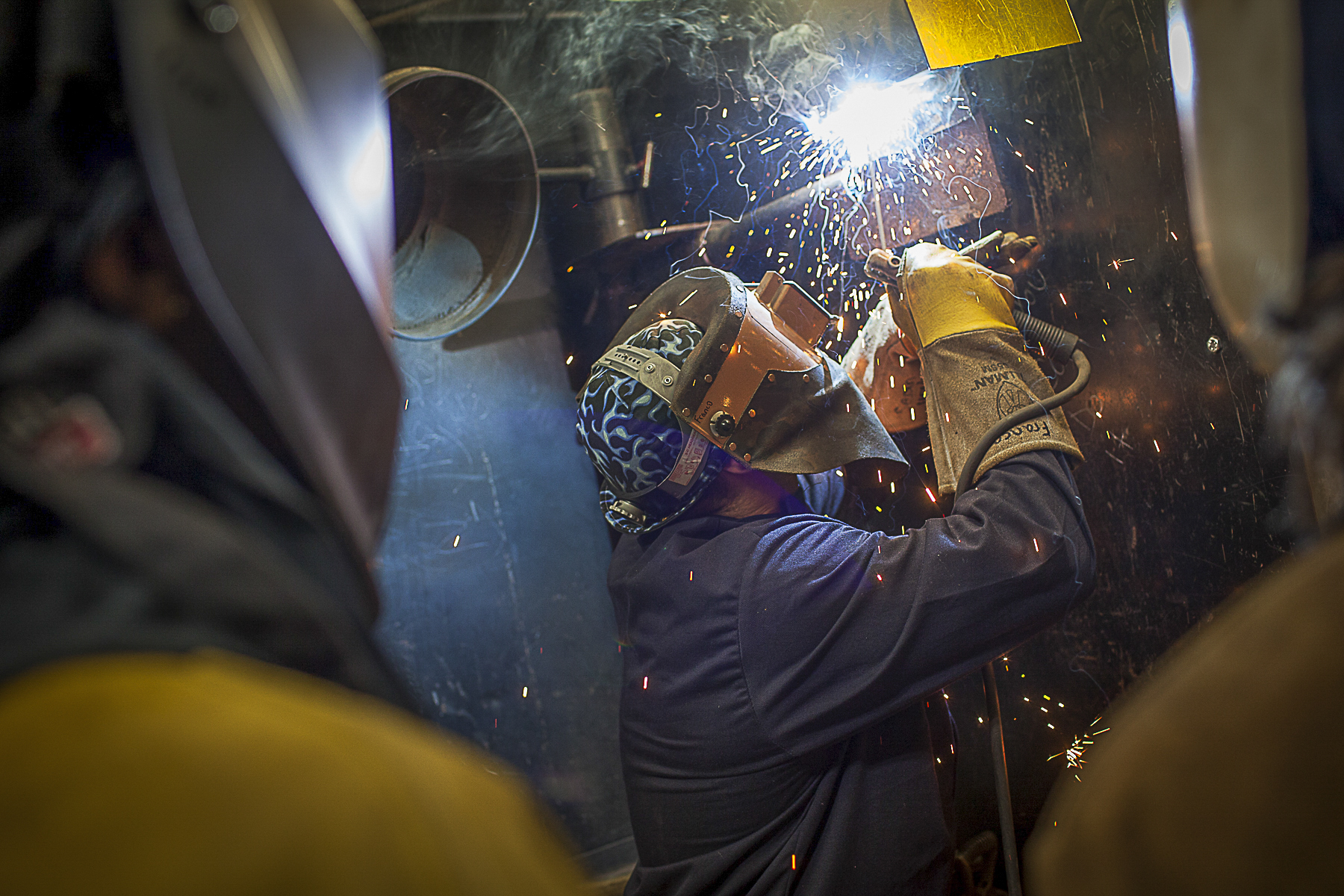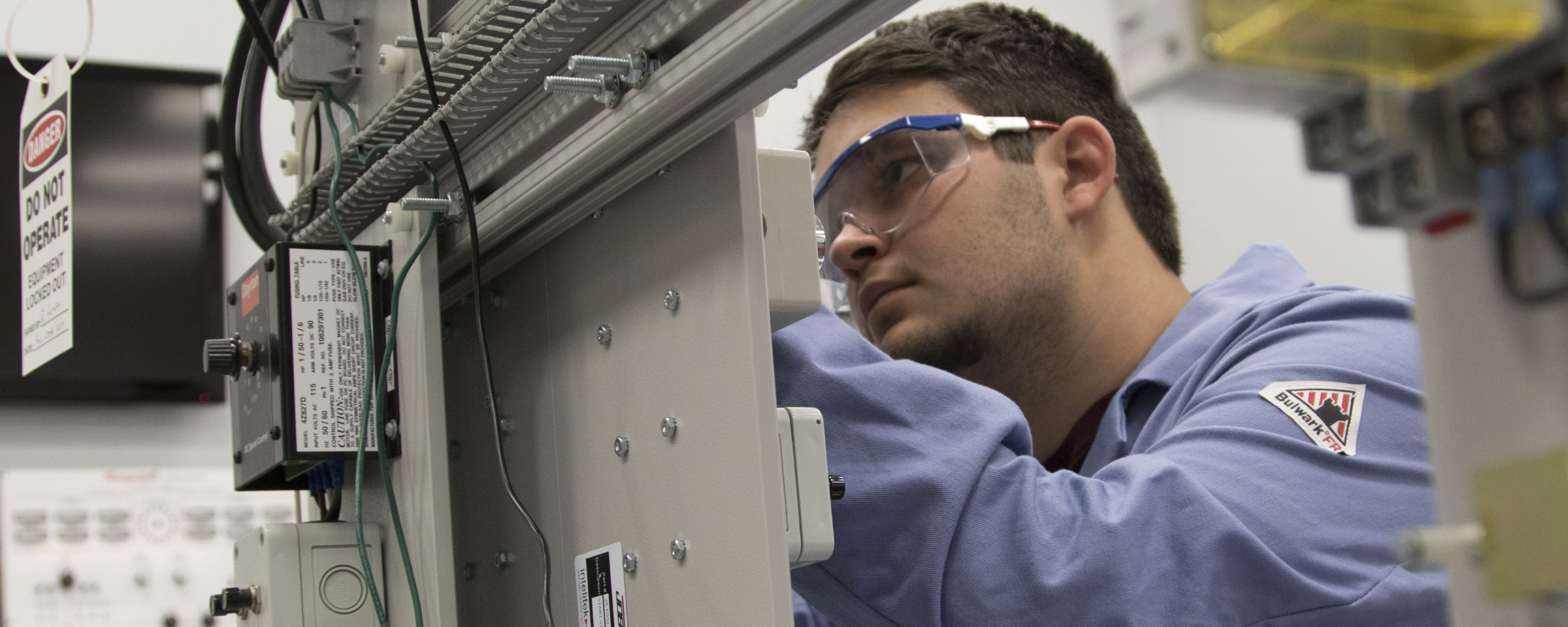
A SOLID STRUCTURE WCJC's Welding Technology Program prepares graduates for workforce

WCJC Welding Technology Instructor Sean Franco demonstrates basic techniques for students enrolled in the program. The one-year program includes classroom instruction and the development of hands-on skills.
WHARTON, TEXAS – Wharton County Junior College’s Welding Technology Program prepares graduates for gainful employment in a variety of fields, all within one year’s time.
“When the student graduates from the program they have the potential of leaving here with 16 certificates to build their welding resume,” said WCJC Welding Technology Program Director and Instructor Aaron Dittmar.
Developing such a graduate requires constant program evaluation in order to keep up with changes in technology and the industry. From industry-level testing to new course offerings to an online library that covers a dozen welding-related subjects, students pursuing the one-year Combination and Pipe Welding certificate are well prepared for what they will face once they step into the work place.
“I’m a big believer in fundamentals and boundaries,” Dittmar explains. “Good fundamental understanding will take them through whatever new processes or applications they will encounter as they navigate through the course and then after graduation into the work force.”
On average, Dittmar and fellow instructor Sean Franco welcome some 60 to 70 students per semester. Most have little to no experience with welding.
“Few have ever struck an arc before,” Dittmar said. “It levels the playing field for the student body and they tend to work and learn together better.”
Program curriculum includes a mix of practical, hands-on skills and classroom instruction. Part of that teaching includes access to the American Welding Society’s online library, which offers more than 100 hours of training in such topics as welding fundamentals, metallurgy, safety, destructive testing, fabrication math and welding economics.
On the practical side, students get to put their skills to the test in a cutting-edge lab located at the Wharton campus. Everything from layout to fabrication to blueprint reading is covered, with new classes added as different trends are developed in the industry.
“Our goal is to produce a proven student both practically and academically,” Dittmar said.
Although the program is housed at the Wharton campus, Continuing Education training is held at the Bay City campus and specialized classes are offered to inmates at the Fort Bend County Jail. Dittmar, a graduate of the welding program himself, has taught at WCJC for a decade and said the program has experienced impressive growth.
Career outlook is equally solid, with job placement for graduates staying around 80 percent. The United States Department of Labor’s Bureau of Labor Statistics reports median pay for welders as $40,240 annually.
For more information on WCJC’s Welding Technology Program, please visit the college’s website at www.wcjc.edu
###

